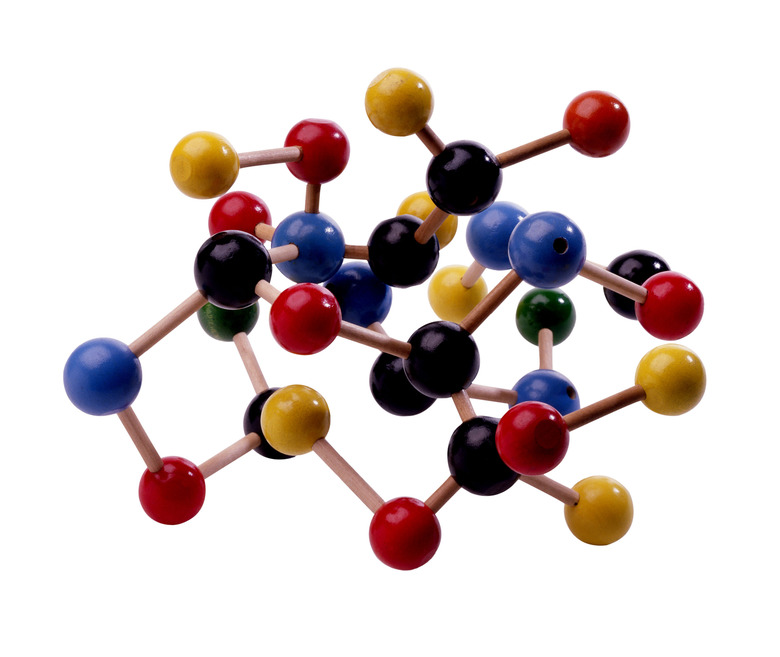How Does The Number Of Electron Pairs Determine The Shape?
According to the Valence-Shell Electron-Pair Repulsion Model, widely accepted among chemists since its development in the 1950s, the repulsion between electron pairs shapes the molecule in such a way as to reduce the repelling energy, or maximize the distance, between those pairs.
How The VSEPR Model Works
How The VSEPR Model Works
Following a draft of a molecule's Lewis dot structure, which uses dots to identify the number of valence, or outer shell, electrons each included atom has, you can then count the number of bonding and non-bonding electron groups that encircle the central atom.These pairs are spaced around the valence shell in such a way as to achieve the furthest distance possible between them, but only the bonding electron pairs, or those attached to an atom, will contribute to the molecule's final shape.
Examples
Examples
A molecule with two bonding electron pairs and no non-bonding pairs, such as carbon dioxide, would be linear. While the molecules for water and ammonia both contain four valence shell electron groups, the water molecule contains two bonding and two non-bonding electron pairs, resulting in a v-shaped molecule, as the two hydrogen atoms are forced closer together to account for the two pairs of non-bonding electrons. The ammonia molecule, however, includes three bonding electron pairs, one for each hydrogen atom, and thus results in a trigonal pyramidal shape.
Cite This Article
MLA
Siskin, Teresa J.. "How Does The Number Of Electron Pairs Determine The Shape?" sciencing.com, https://www.sciencing.com/number-electron-pairs-determine-shape-16437/. 24 April 2017.
APA
Siskin, Teresa J.. (2017, April 24). How Does The Number Of Electron Pairs Determine The Shape?. sciencing.com. Retrieved from https://www.sciencing.com/number-electron-pairs-determine-shape-16437/
Chicago
Siskin, Teresa J.. How Does The Number Of Electron Pairs Determine The Shape? last modified March 24, 2022. https://www.sciencing.com/number-electron-pairs-determine-shape-16437/
